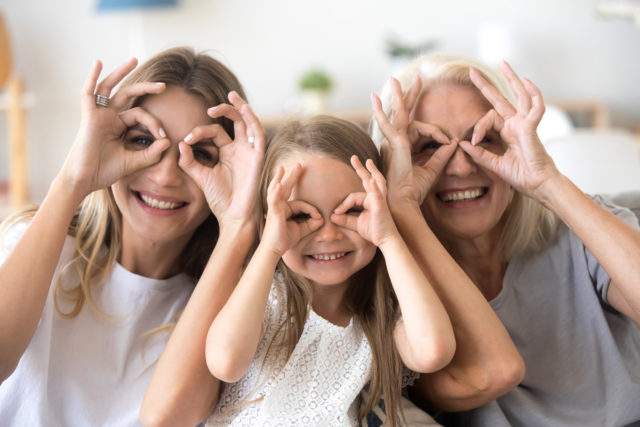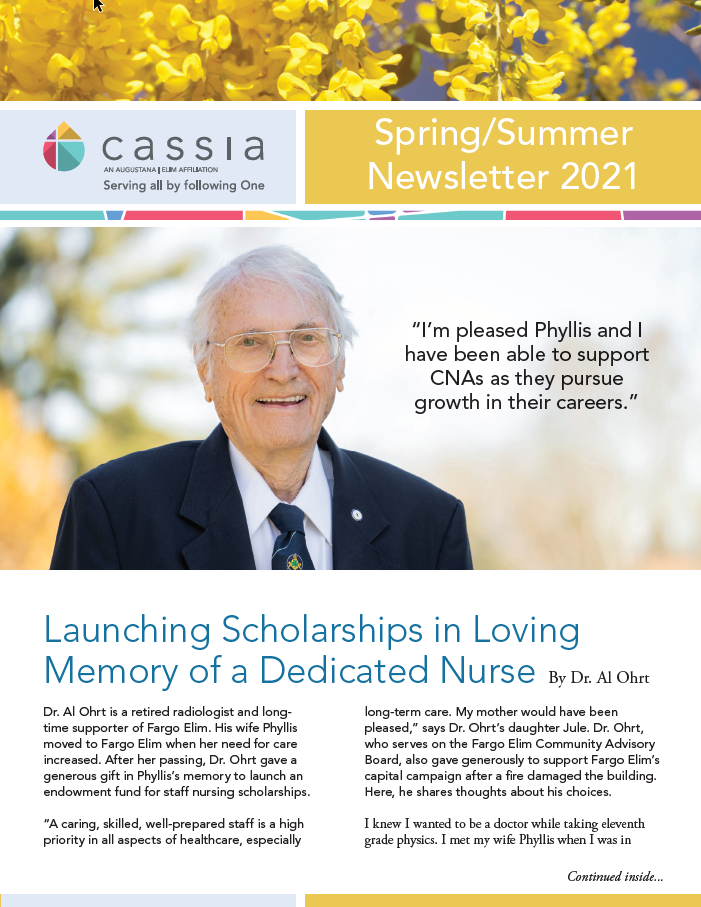One of the most precious blessings we have as humans is our vision. While all of our senses are important, vision, in my view, makes it easier to do almost anything. As we get older, vision loss can sneak up on us unexpectedly. In fact, I recently learned the number of older Americans with substantial age-related vision loss is expected to double by 2030, according to the American Foundation for the Blind.
Yet, there are simple ways to protect and preserve vision as you grow older.
- Feed Your Eyes. According to physicians at Chicago’s Kraff Eye Institute, vision is greatly impacted by vitamin deficiencies, which can decrease our ability to see. Key vitamins that improve eyesight include vitamins A, B, C, E and lutein. These vitamins can be found in the following foods:
- Fish
- Nuts
- Seeds such as sunflower seeds
- Citrus fruits
- Leafy greens
- Sweet potatoes
- Eggs
- Beef
- Legumes
- Keep Moving. Regular exercise is good for all of us, no matter what age we are. A number of studies have found regular exercise reduces risk for eye problems such as cataracts, age-related macular degeneration and glaucoma.
Exercise that includes cardiovascular activities lowers pressure in your eyes and helps keep eye cells protected. Cardio exercise also increases the flow of blood to the optic nerve and retina. Overall, exercise is especially beneficial to those with glaucoma—which I’ll discuss more at the end of this article.
- Talk to family members. If at all possible, try and find out the health history of your family. If someone has been diagnosed with an eye disease, you may be at risk, too, as many eye conditions are hereditary. Knowing if family members have experienced eye disease or vision problems will inform your own questions to your doctor.
- Don’t forget sunglasses outdoors! I know many people who won’t go outside for even five minutes without sunglasses, and others who always wear them when playing sports, taking walks or going to the store. You also need protective eyewear such as safety glasses or eye shields if playing sports or engaging in activities like woodworking. The aim is to protect your eyes from the sun—and accidents. If you purchase a pair of sunglasses, be sure to get lenses that offer 100 percent ultraviolet (UV) protection.
- Give up smoking—or don’t start. We know smoking can increase the risk of cancer and many other harmful conditions. It can also make it a whole lot easier to get cataracts and age-related macular degeneration, according to the Surgeon General.
- Take a break! Spending time in front of a computer screen, which many of us do, can strain your eyes a lot more than you may think. If you’re spending a lot of time staring at your computer screen or phone, you may notice your eyes getting dry.
Besides putting lubricant drops into your eyes, try the 20-20-20 rule recommended by the National Institutes of Health (NIH). After twenty minutes of screen time, take at least twenty seconds to look elsewhere. The NIH suggestion is to look at something twenty feet in front of you (either at the wall or through the window). The idea is to rest your eyes throughout the day.
- Watch your blood pressure and blood sugar. When your blood sugar and blood pressure levels fluctuate, blood vessels in the retina can be affected and possibly lead to vision problems—including blindness. Individuals with diabetes or high blood pressure need to keep their levels in check to preserve their vision.
- Get an annual eye exam—especially at age fifty and older. At the start of this article, I mentioned that eye diseases can sneak up on us. That’s because many age-related eye conditions have few symptoms when they start. Seeing the doctor early to have your eyes fully dilated and examined is the best way to prevent serious eye disease.
Speaking of sneaking up on you, glaucoma can steal up to forty percent of your vision before you notice. What is glaucoma? It’s a group of eye diseases that damage the optic nerve and ruin vision without you knowing it, because you won’t have any symptoms! People at higher risk of glaucoma include the following:
- Those aged sixty and older
- People of African, Asian or Latino ethnicity
- Those who have family members with glaucoma
- People with diabetes
- Extremely nearsighted people
While there is no cure for glaucoma, medication or surgery can slow or prevent increased vision loss. Early detection is essential to stopping the disease’s progression. Physicians need to evaluate each person’s level of disease to determine the best treatment.
Comprehensive eye exams are the best way to prevent glaucoma. Your eye doctor will use a variety of tests to make an accurate diagnosis. To learn more, visit www.glaucoma.org. If you have any concerns at all about your eyes—see a physician as soon as you can. If you live in a Cassia community, make sure to share your concerns with staff members, who can help you find a physician if you need one.








